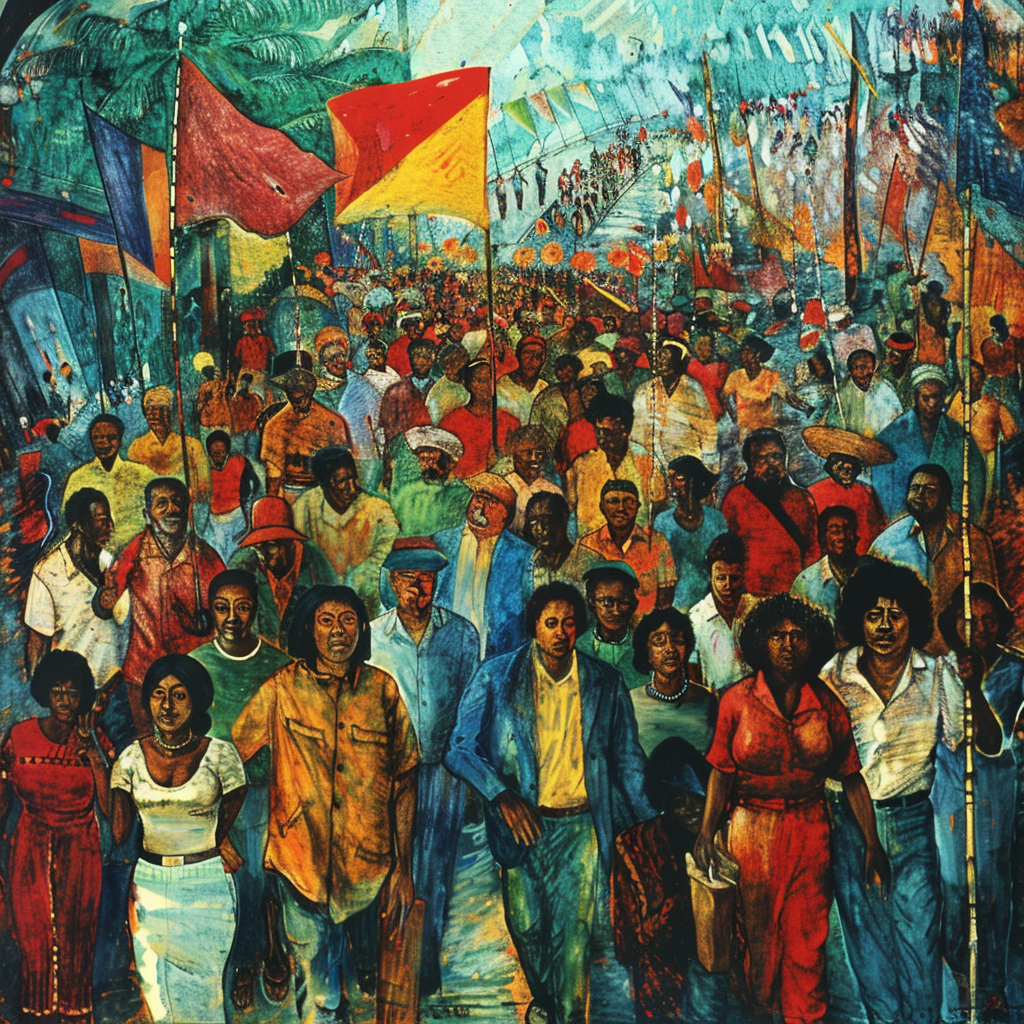Hey there, history buffs! Today, we’re diving into one of the craziest chapters in African history: the Scramble for Africa. Buckle up, because this story is a wild ride through the late 19th and early 20th centuries, filled with drama, intrigue, and a whole lot of colonialism.
What’s the Deal with the Scramble for Africa?
Alright, so picture this: It’s the late 1800s, and Europe is like a bunch of kids fighting over the last slice of pizza. Only instead of pizza, they’re fighting over Africa – a continent bursting with resources, riches, and untapped potential.
Motivations Behind the Madness
Now, you might be wondering, “Why the sudden interest in Africa?” Well, it’s all about that sweet, sweet loot. European powers were hungry for resources like gold, diamonds, rubber, and ivory, and Africa had them in spades. Plus, there was this whole idea of “civilizing” the so-called “backward” Africans, which basically meant imposing European culture and values on them.
The Great Land Grab
And so, the scramble began. European powers raced to stake their claim to African territory, drawing arbitrary borders on maps and dividing the continent like it was a giant game of Risk. It didn’t matter if African communities had been living there for centuries – if it had resources, it was fair game.
The Devastating Effects
But here’s the thing – the scramble wasn’t all sunshine and rainbows. For African communities, it was a nightmare. They were stripped of their land, their resources, and their autonomy, forced into labor and exploited for the benefit of their colonial overlords. It was a devastating blow to African societies, economies, and cultures, leaving scars that are still felt today.
The Legacy Lives On
So, why does any of this matter? Well, because the legacy of the scramble still shapes Africa today. The arbitrary borders drawn by colonial powers have led to ethnic tensions, territorial disputes, and conflicts that continue to divide the continent. And the scars of colonialism – from economic exploitation to cultural erasure – are still being felt by African communities.
So, the next time you hear about the scramble for Africa, remember the incredible impact it had on the continent and its people. It’s a reminder of the dark side of colonialism – and a call to confront the injustices of the past as we work towards a more just and equitable future.
Related Articles
- Decolonization Movements and Independence Struggles
- Religious Conversion and Indigenous Belief Systems
- Healthcare and Colonial Medicine
- Cultural Imperialism and Identity Struggles
- Colonial Borders and Ethnic Conflict
- Economic Exploitation and Resource Extraction
- The Legacy of Colonialism in Education
- Resistance to Colonial Rule
- The Scramble for Africa: Europe’s Greed
- The Impact of Colonialism on African Societies



